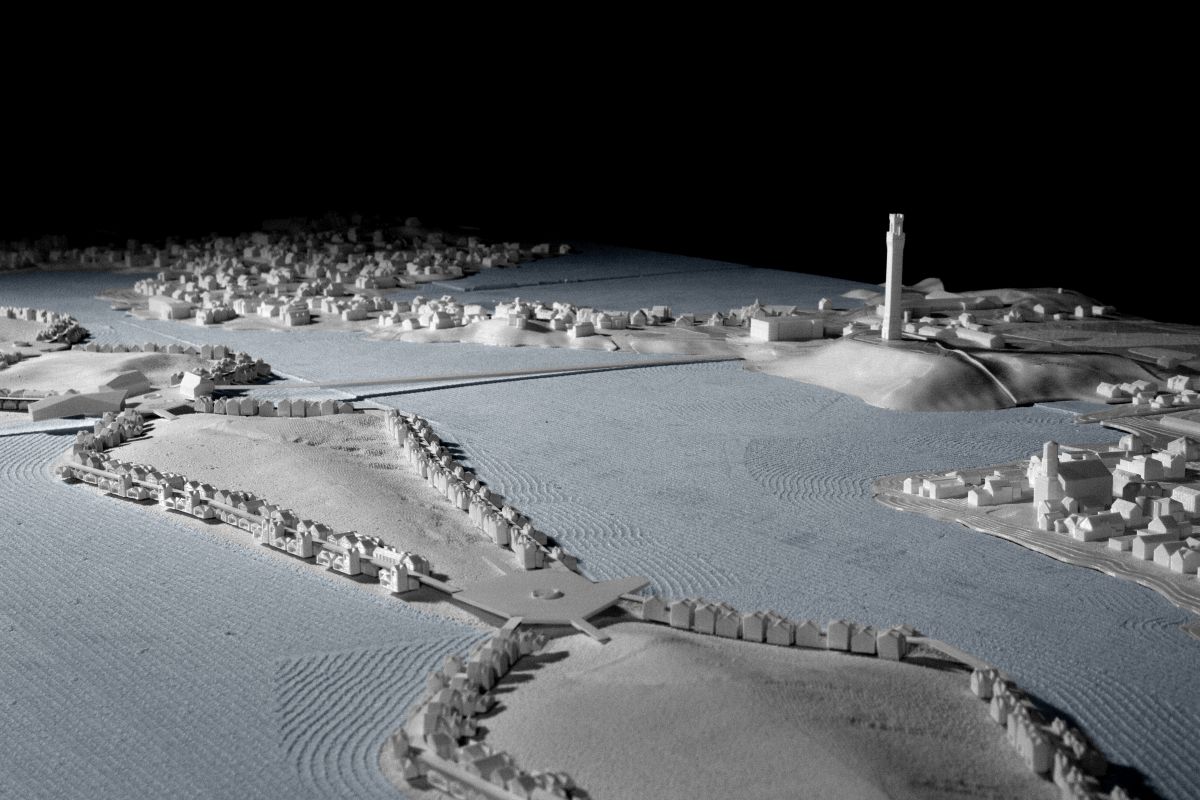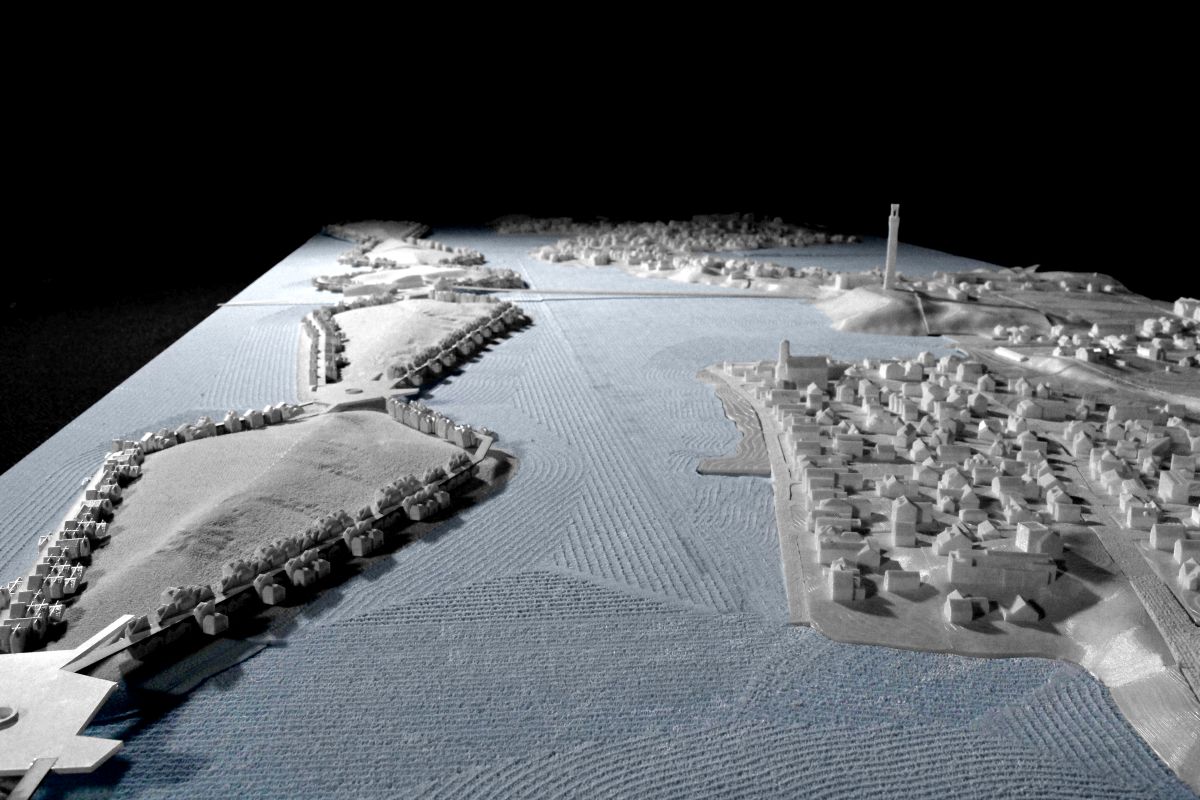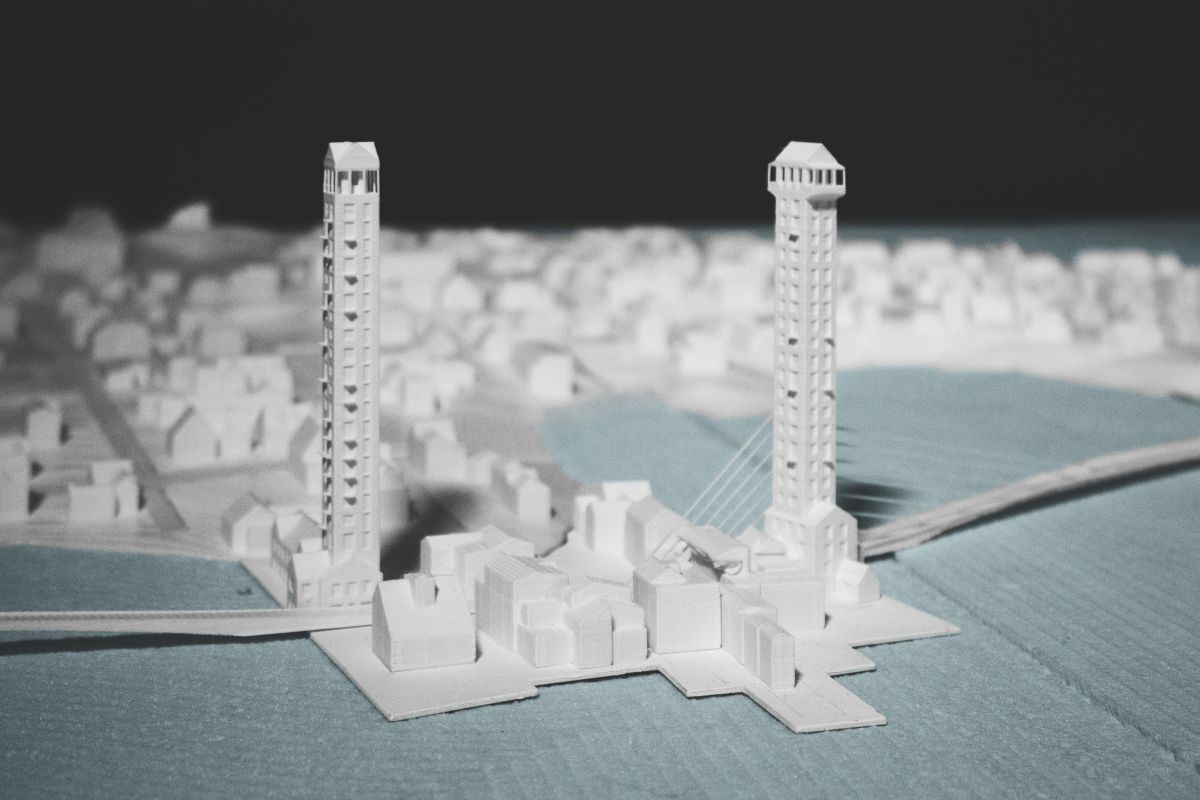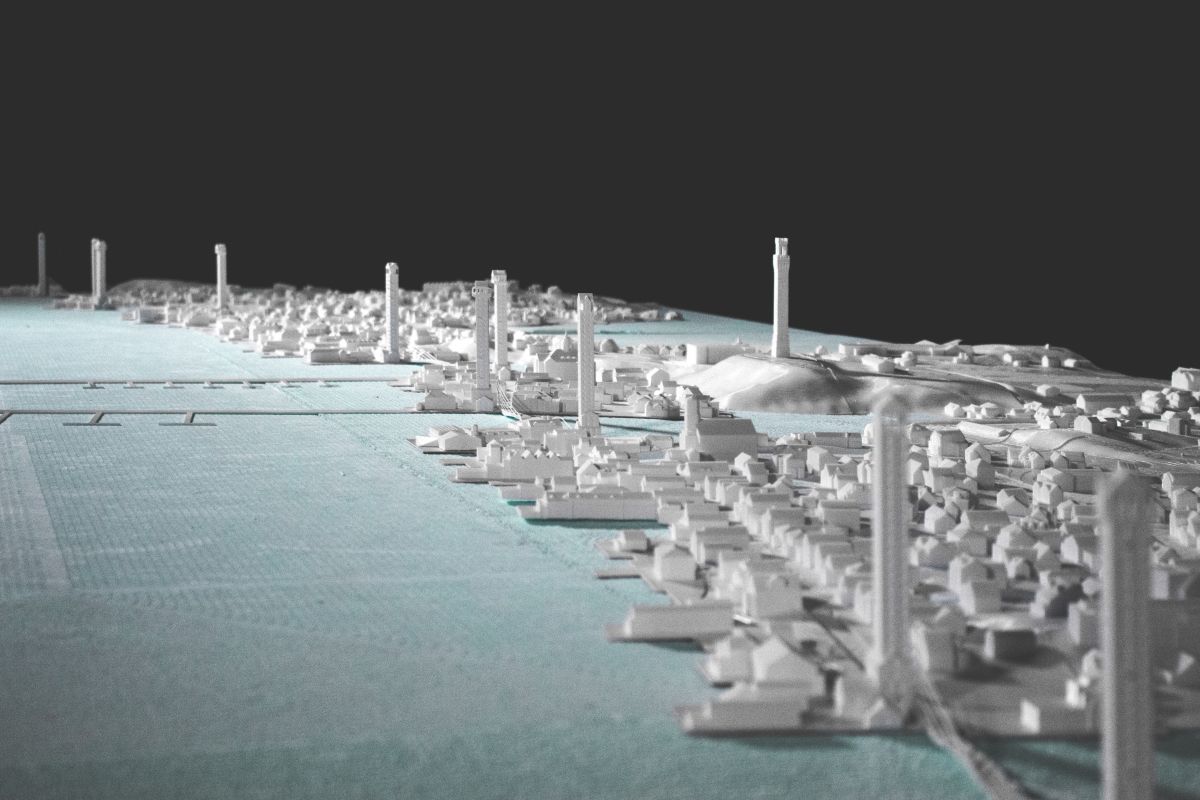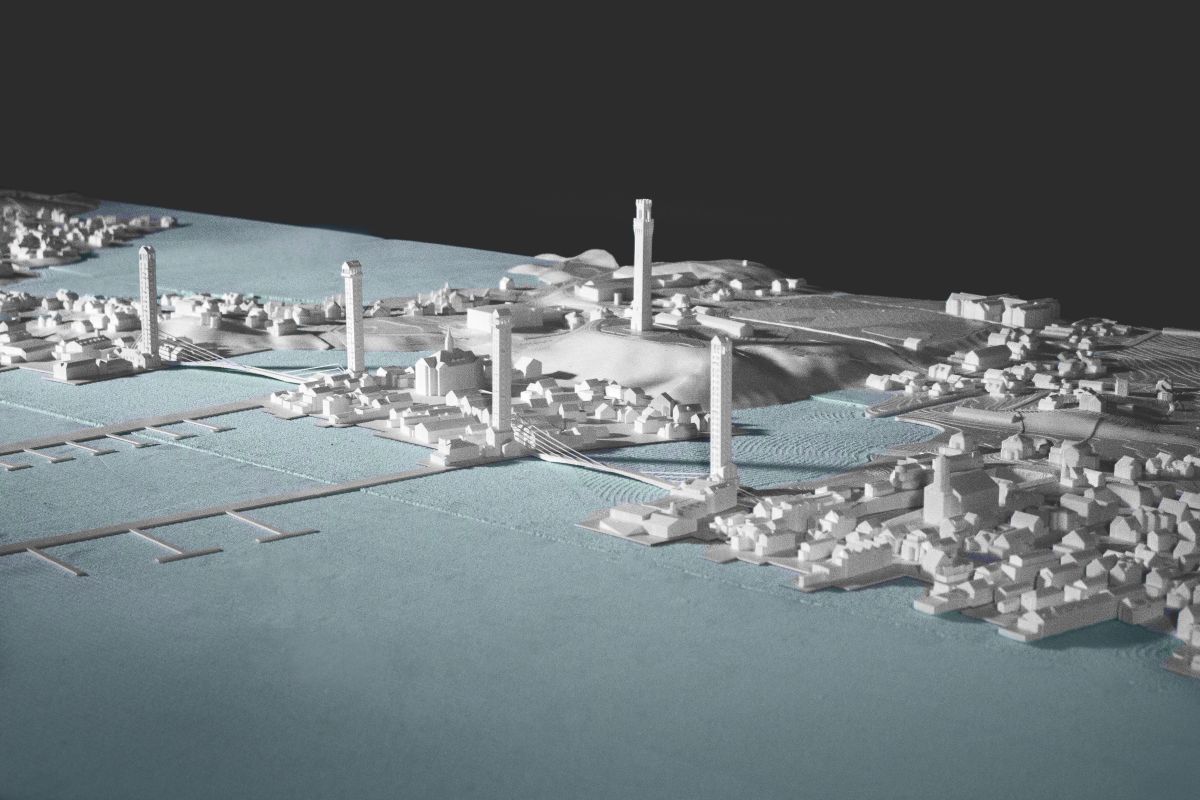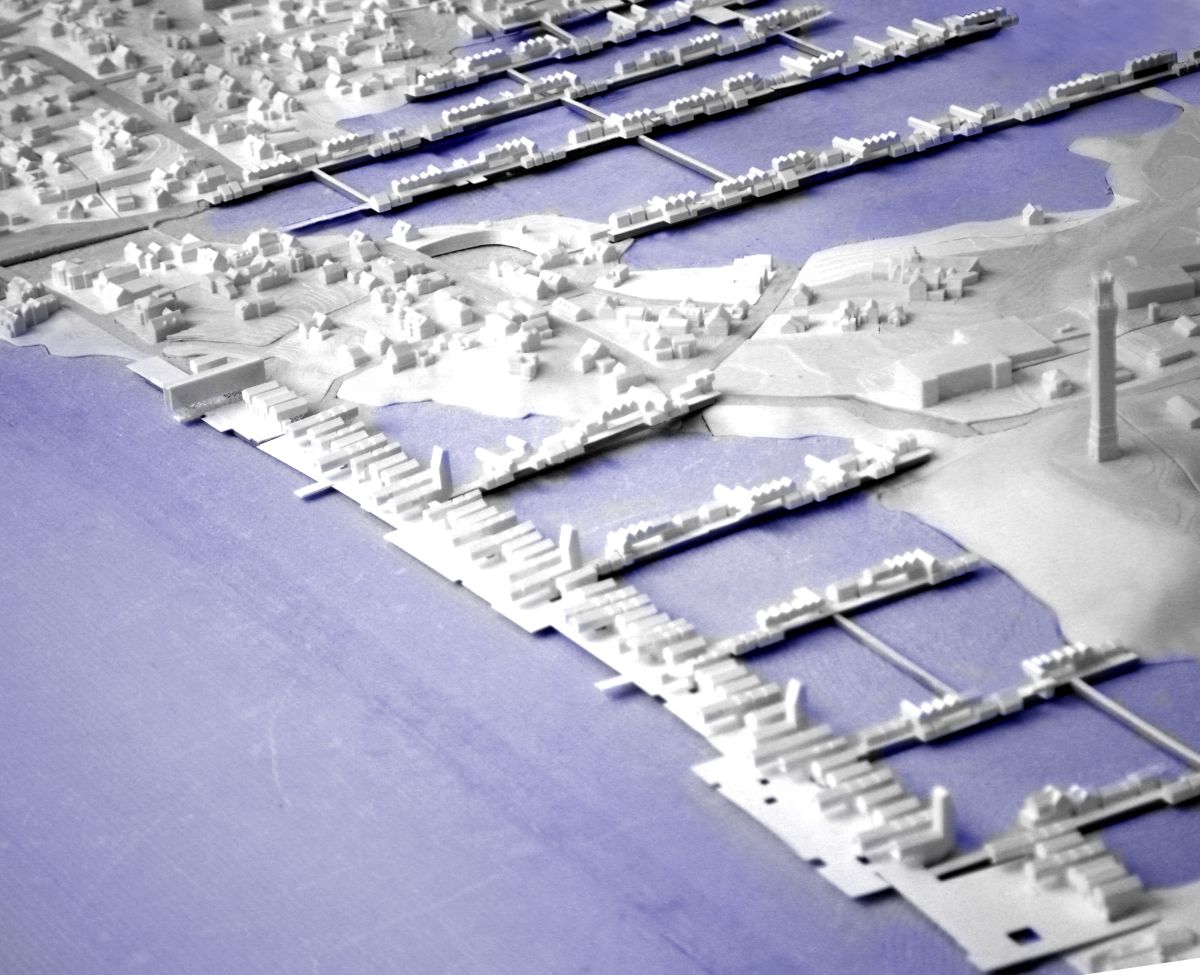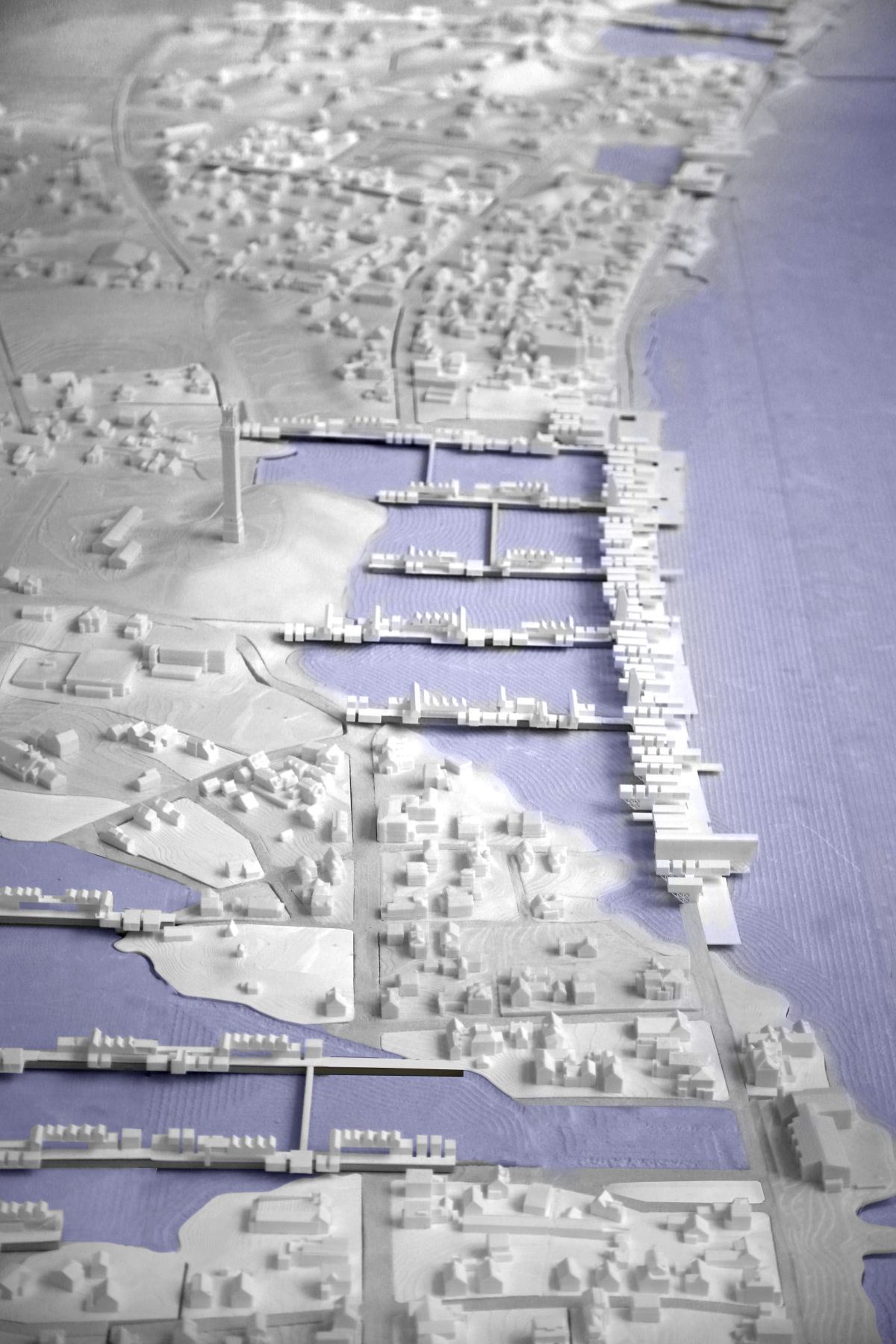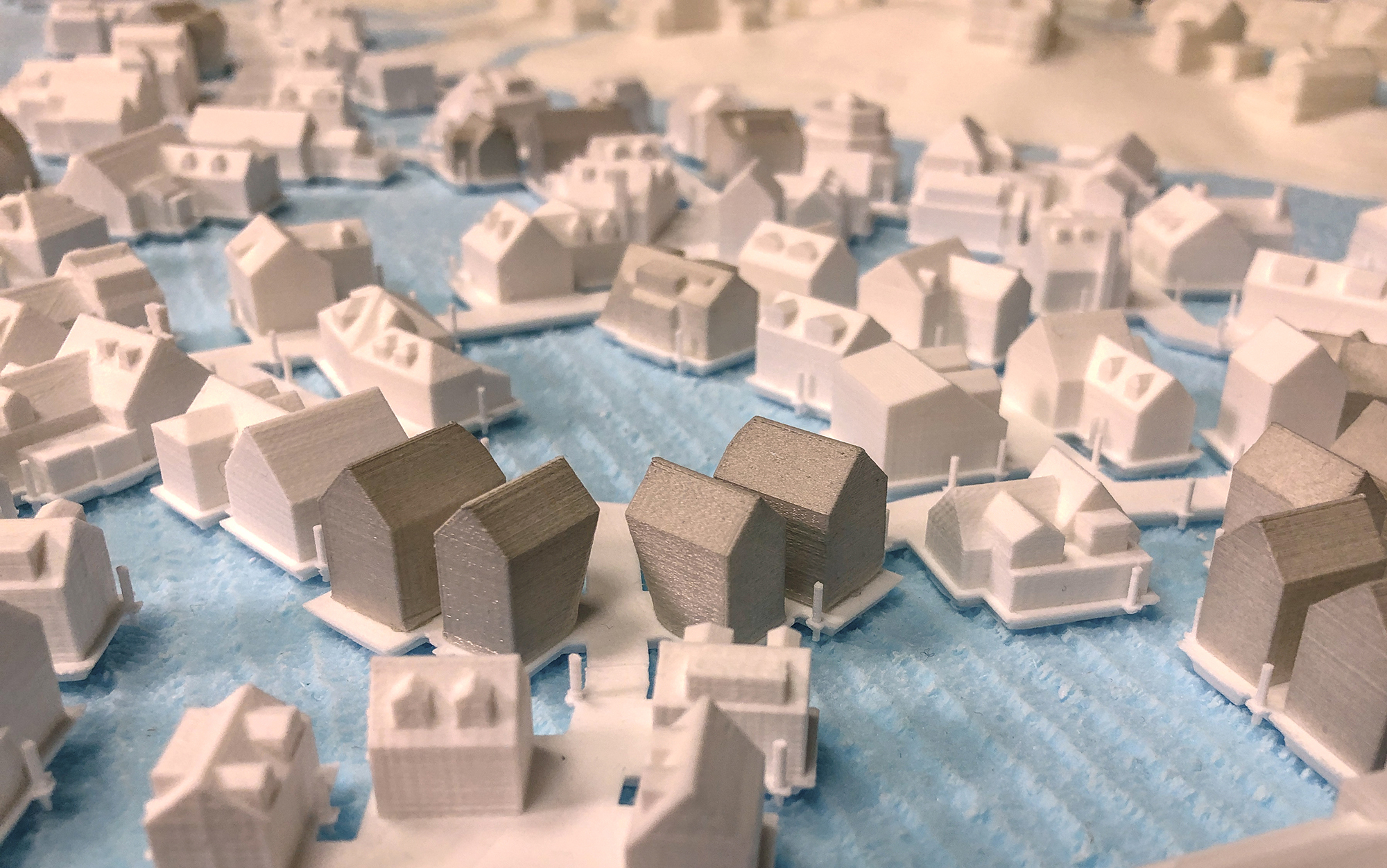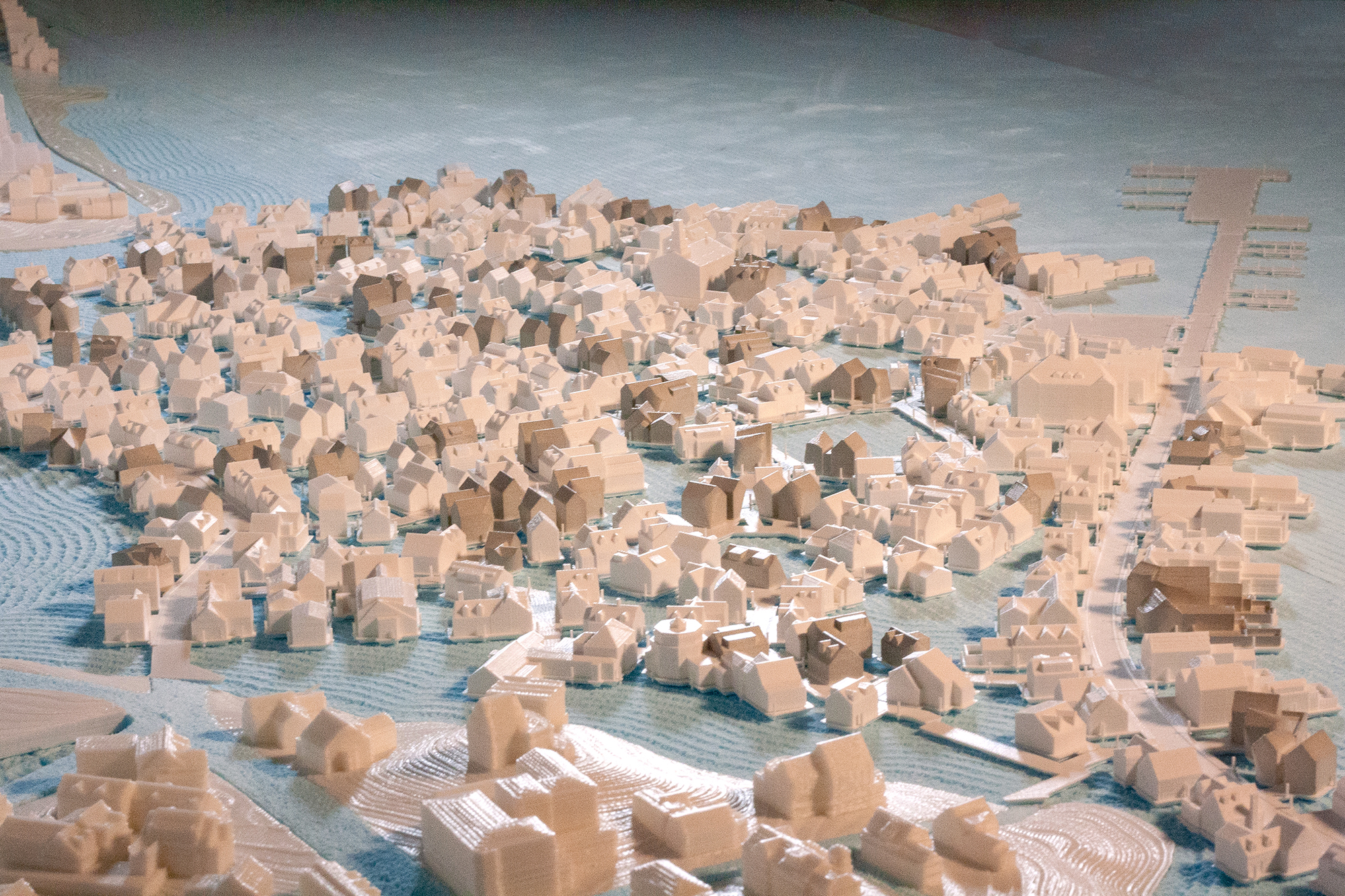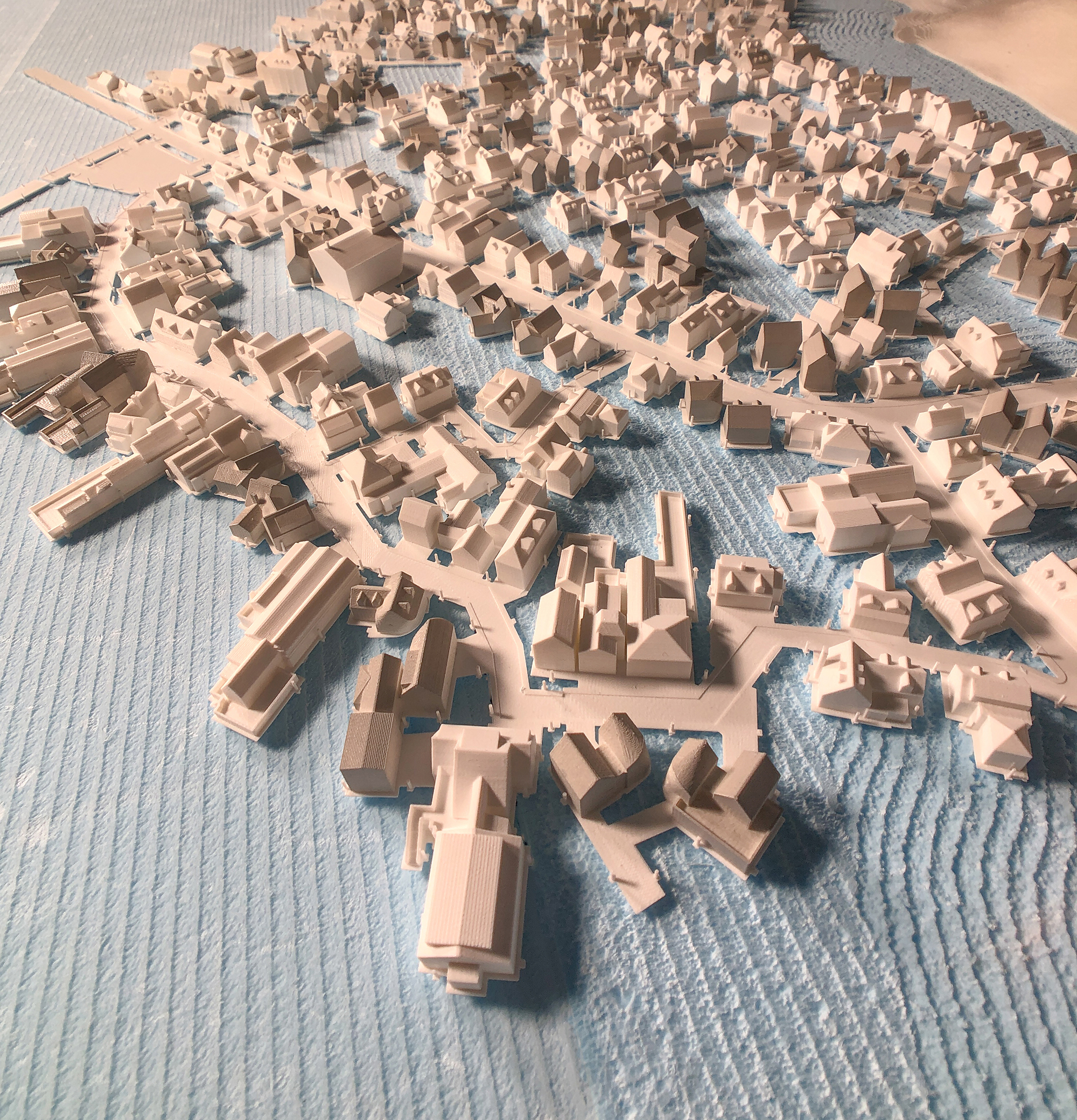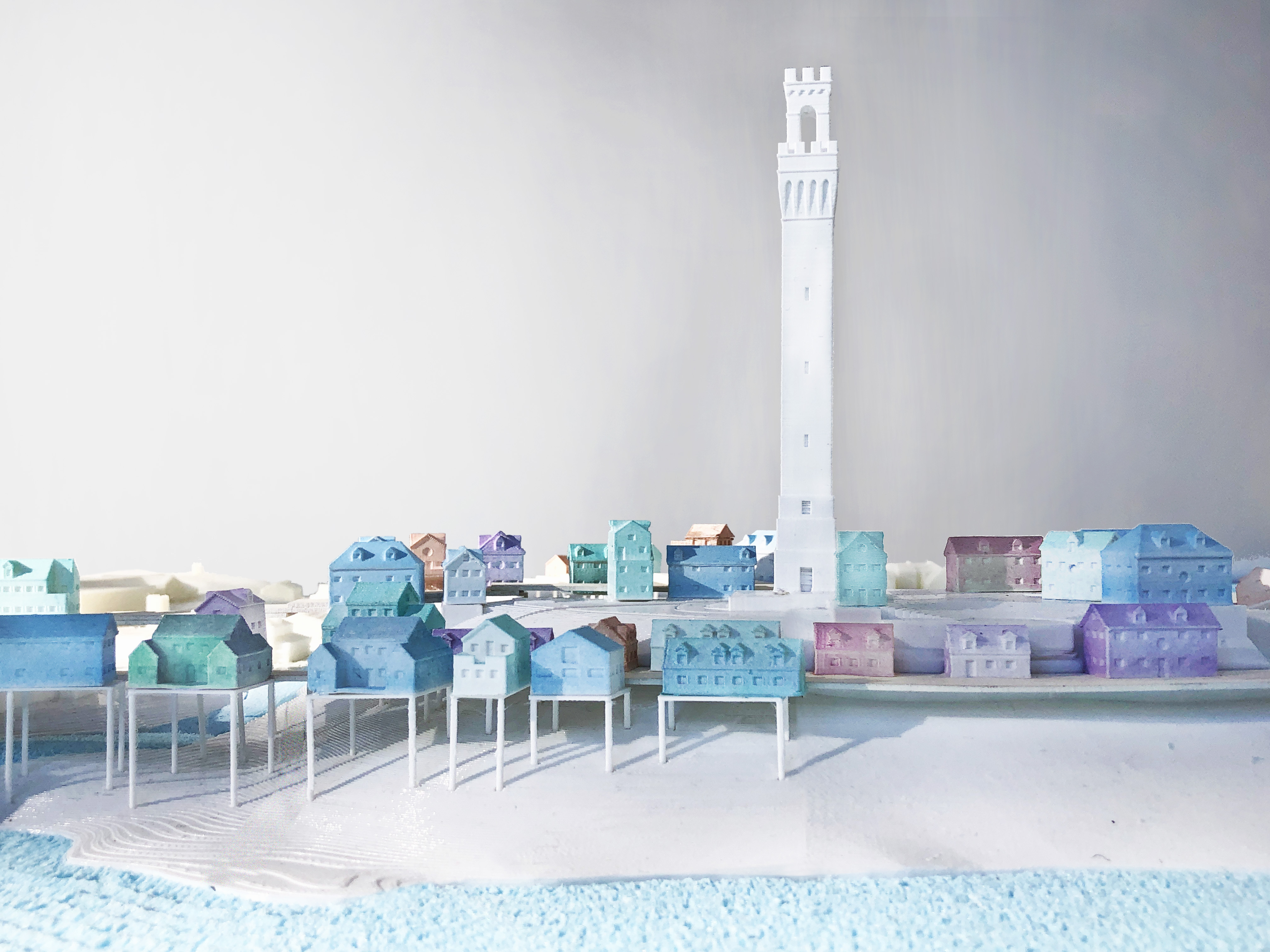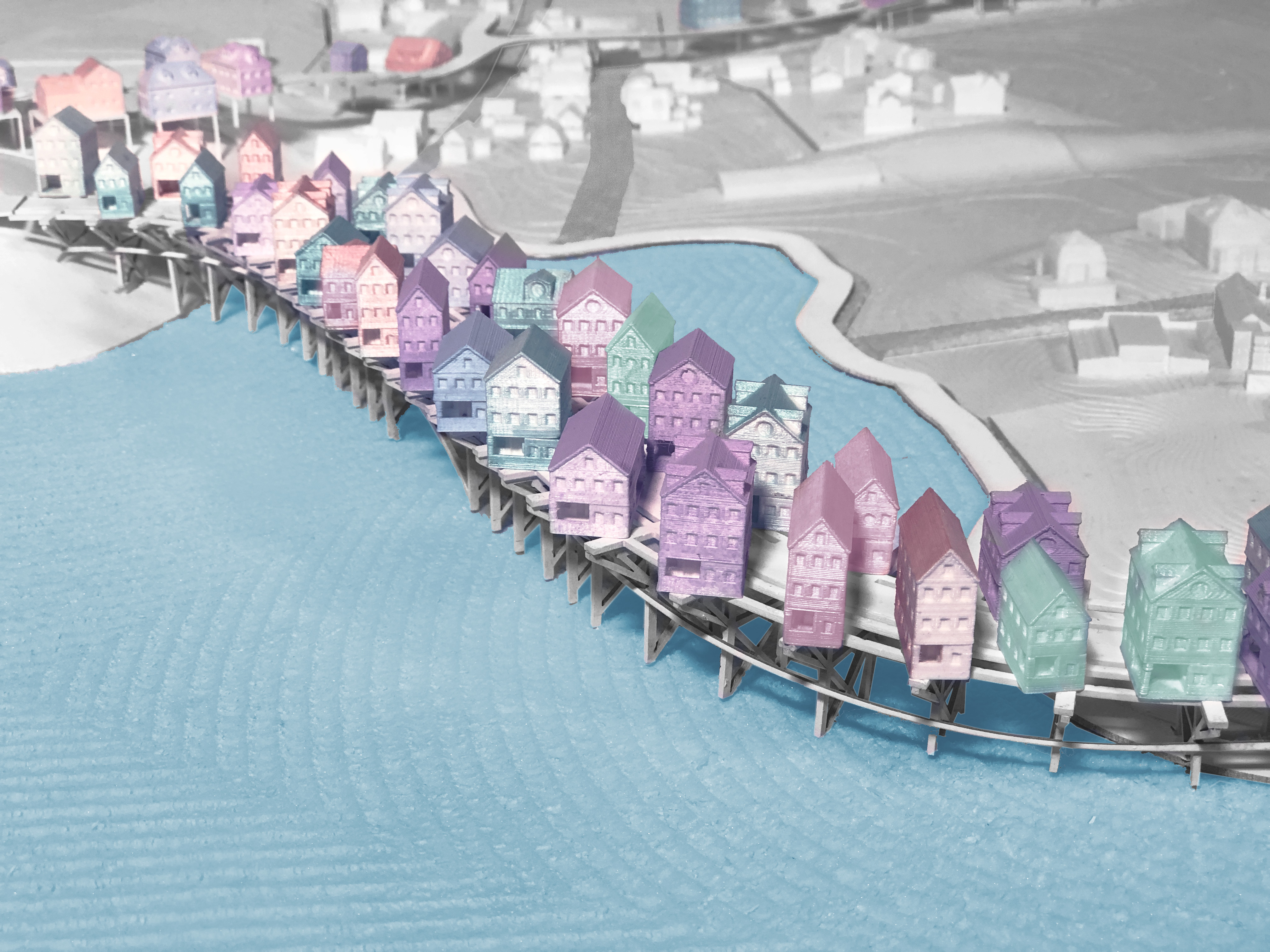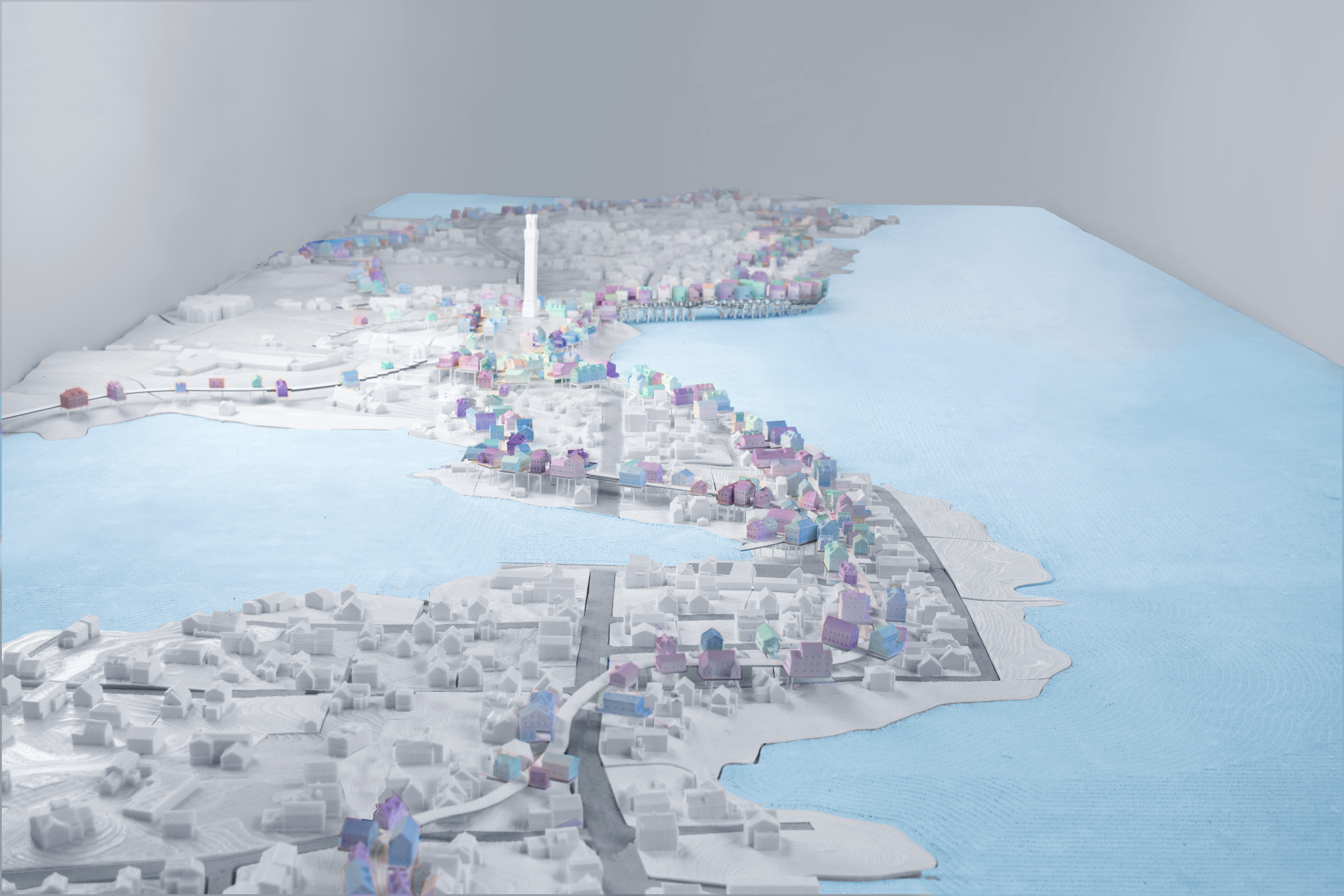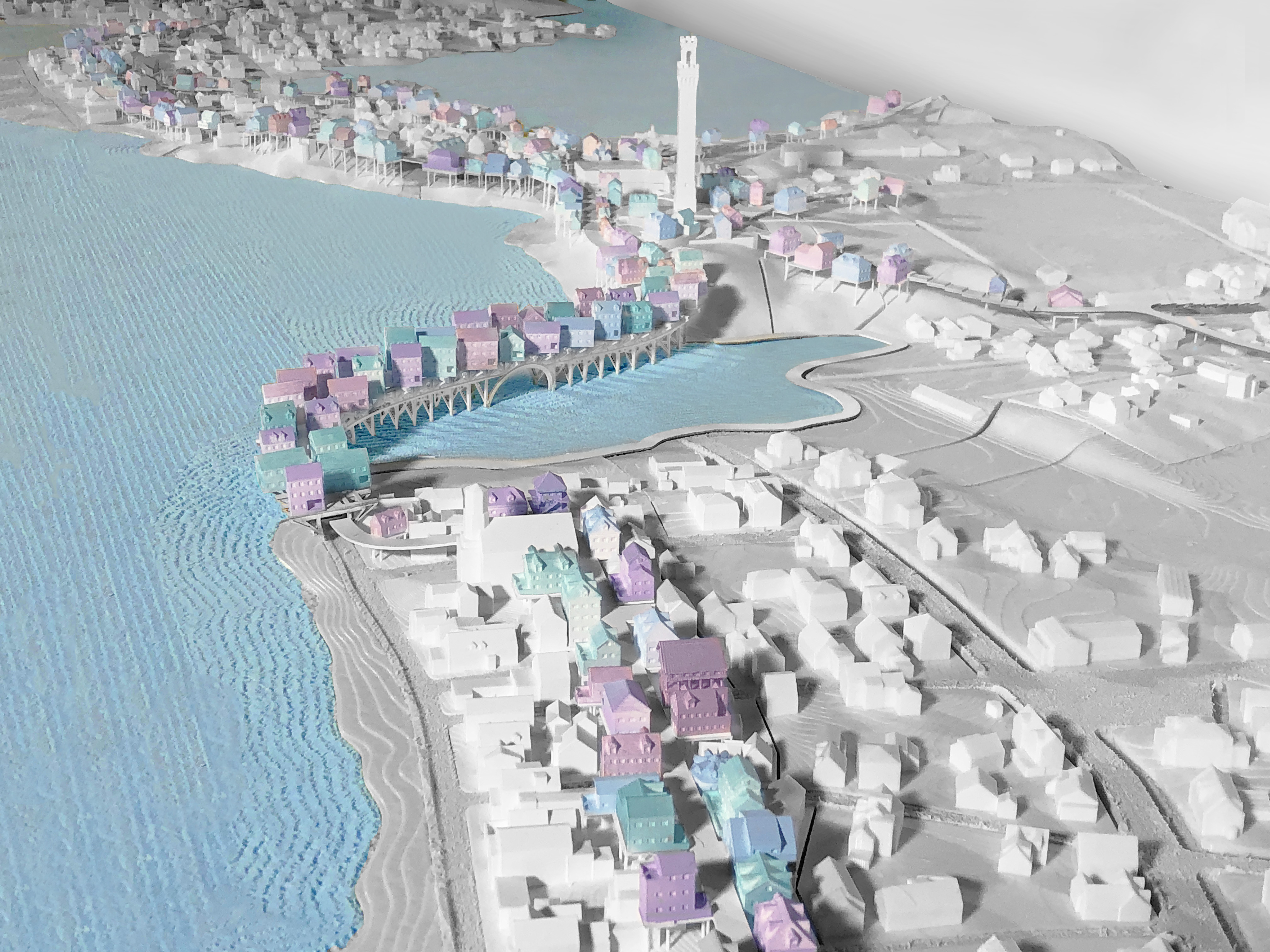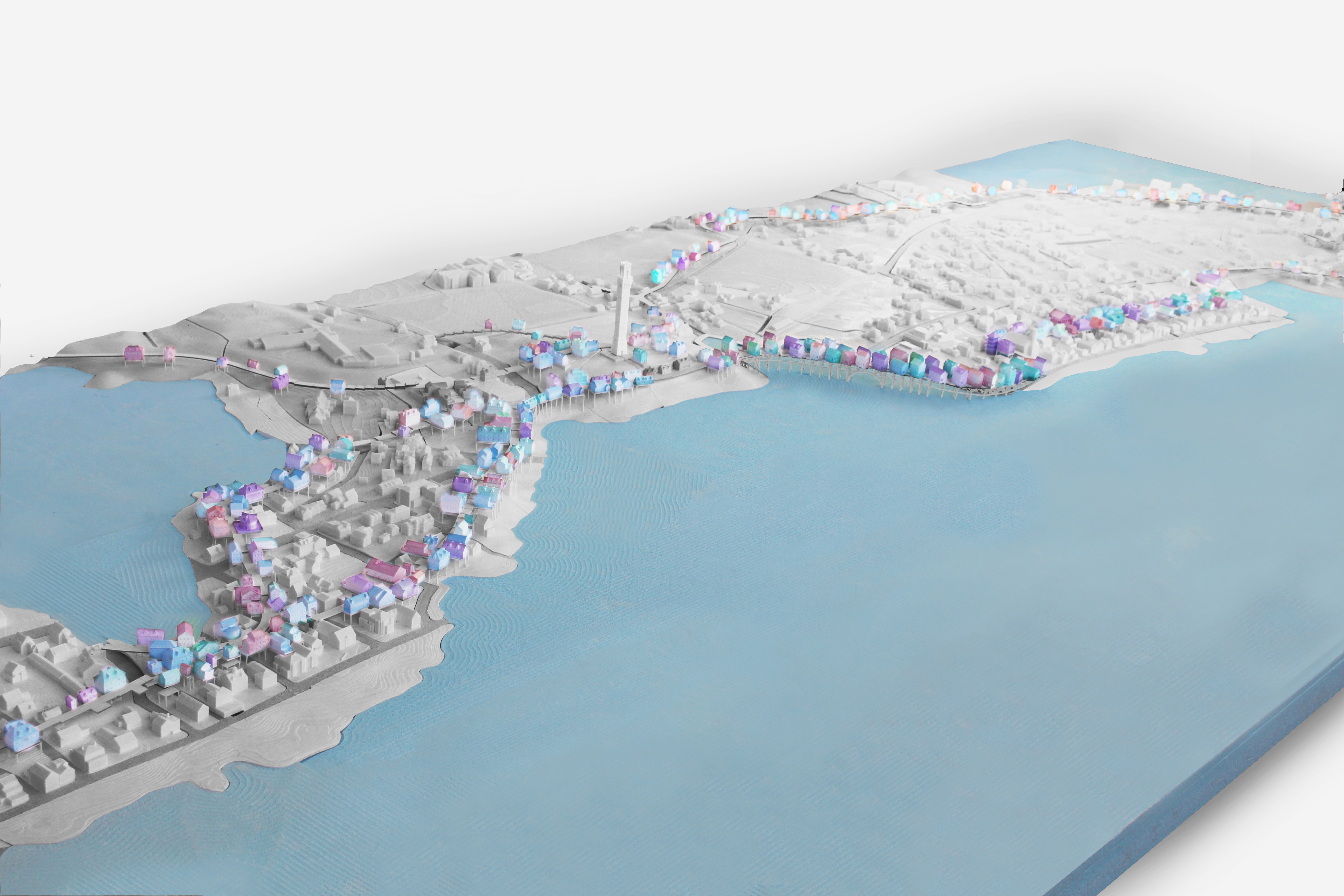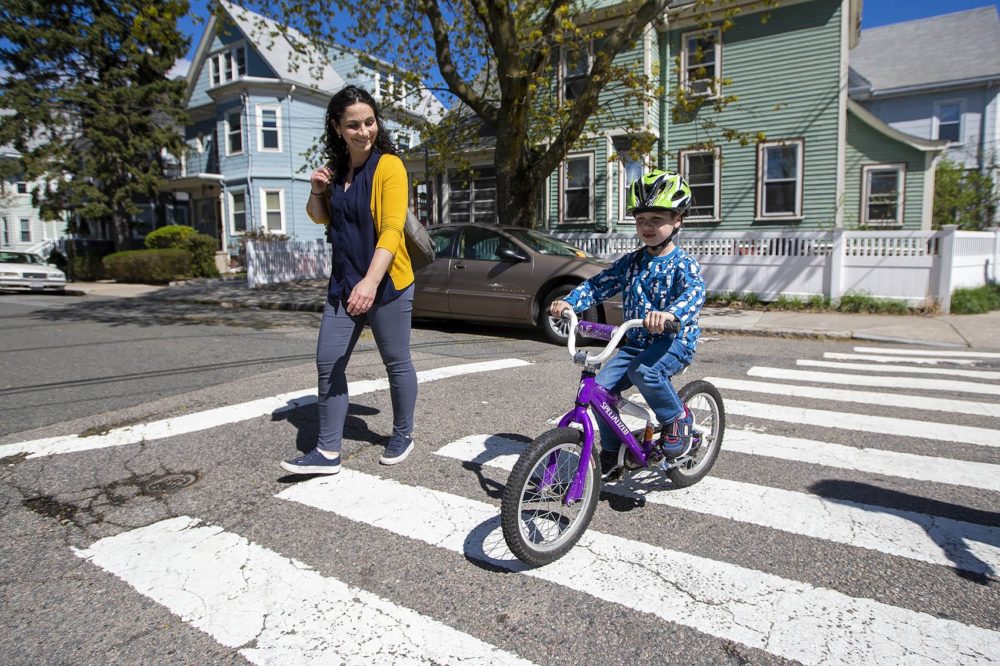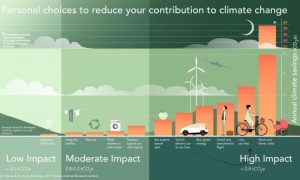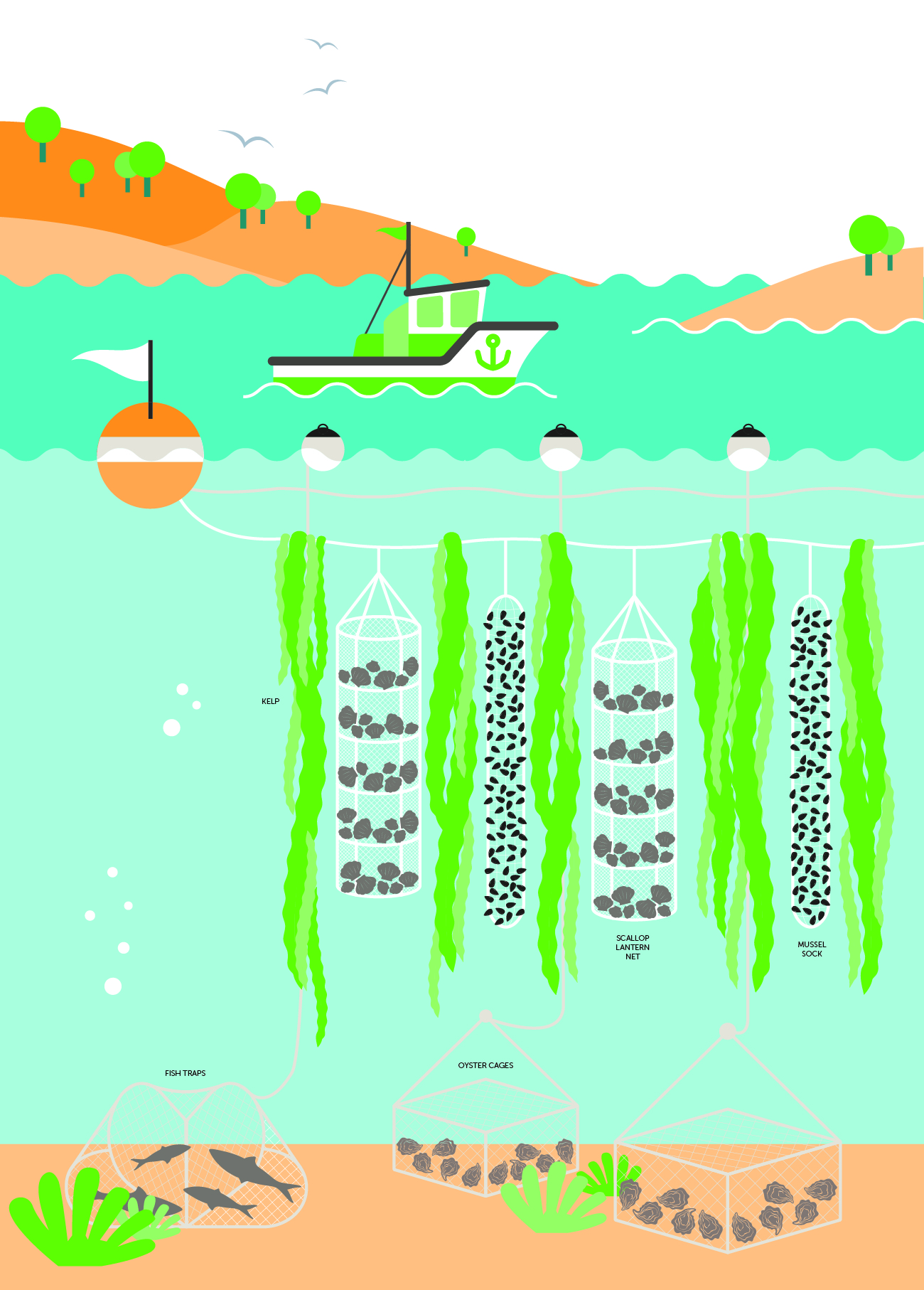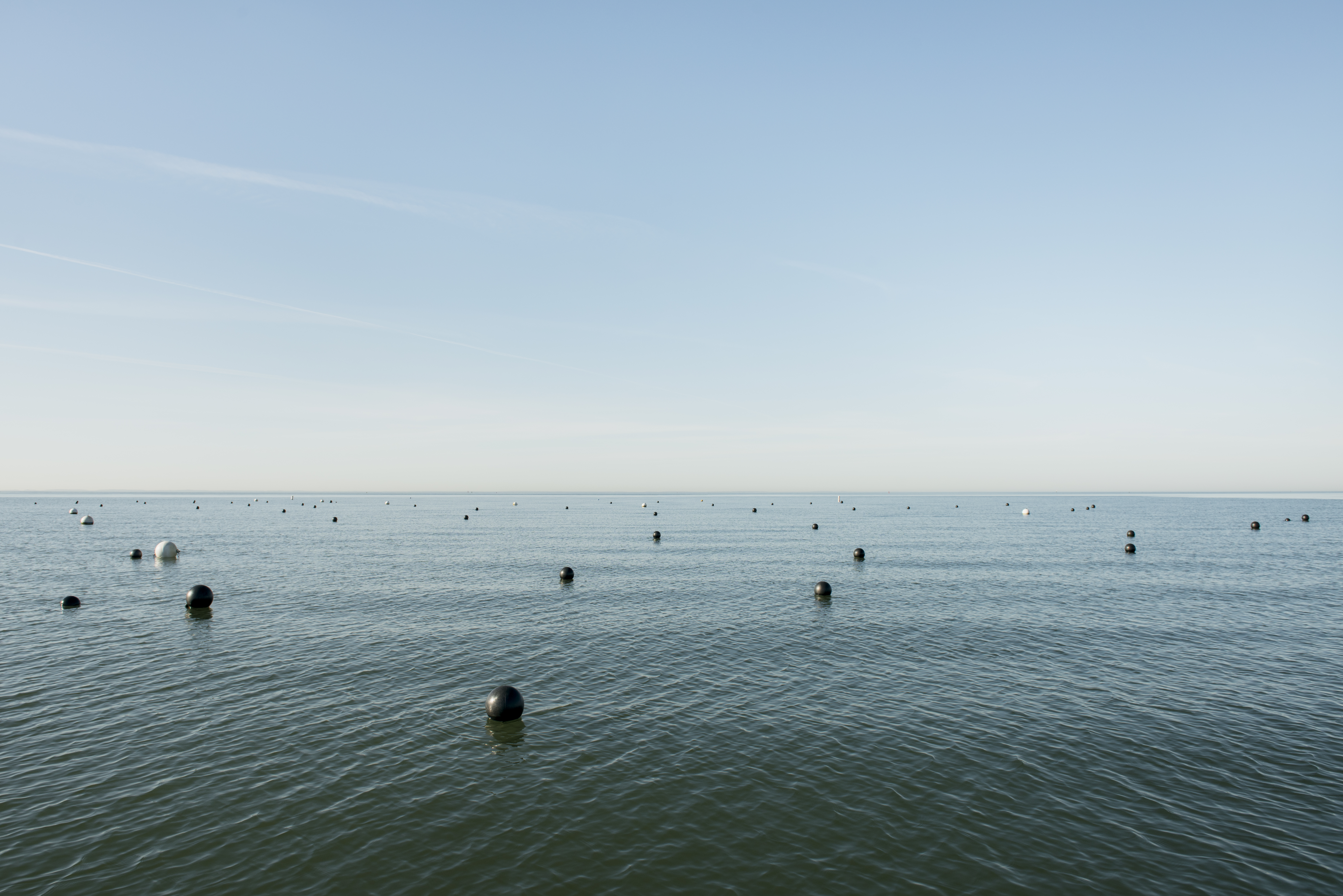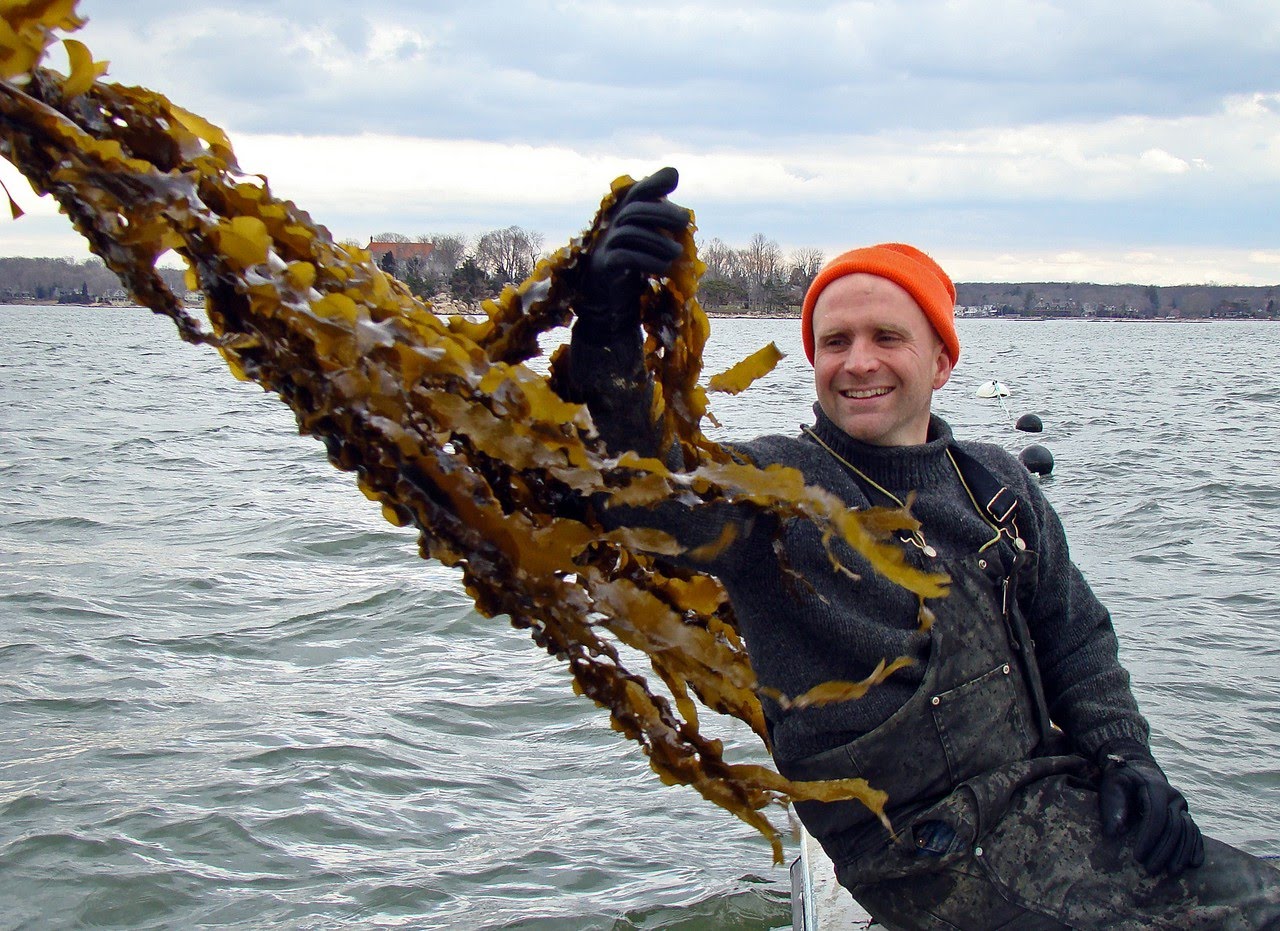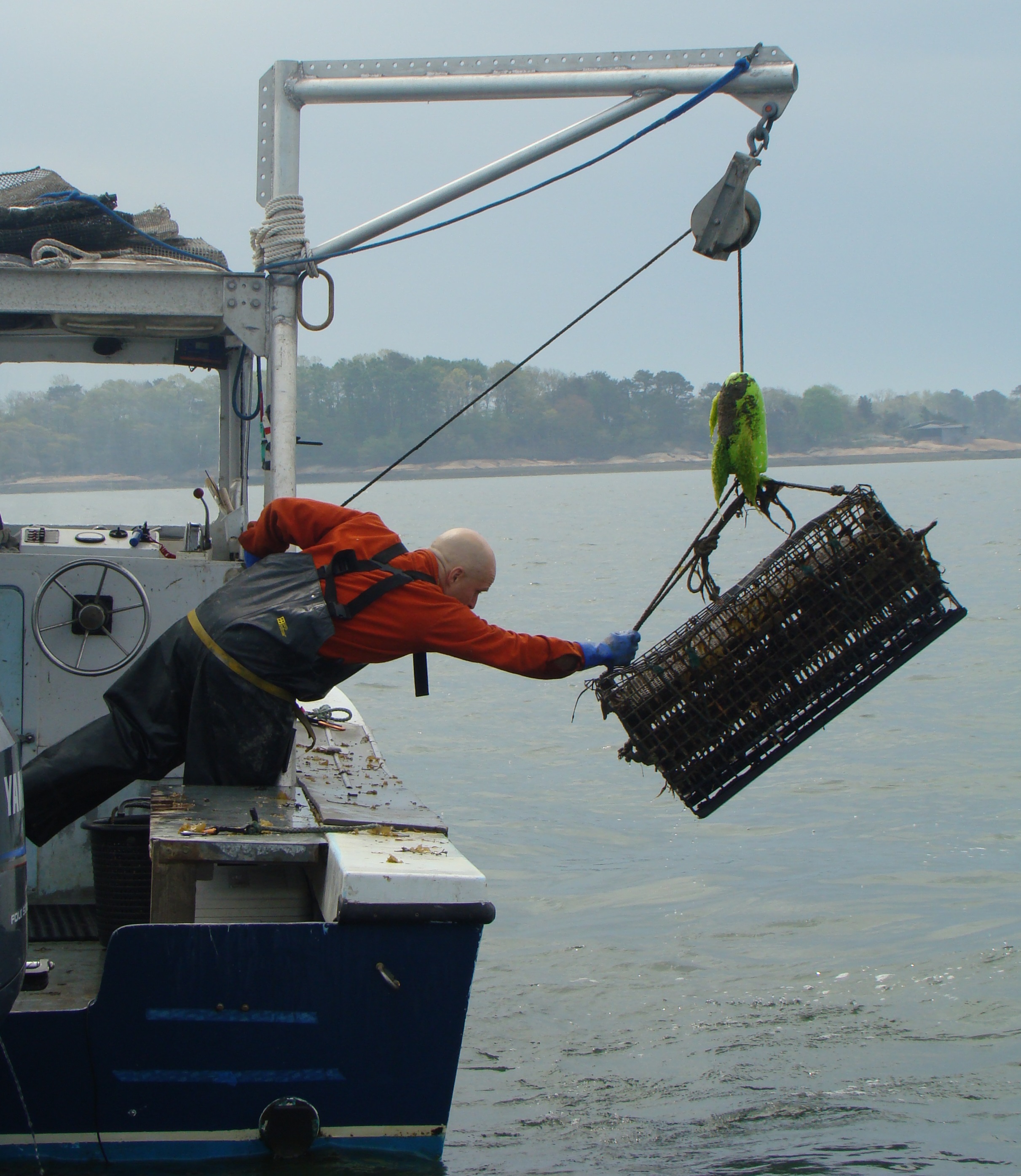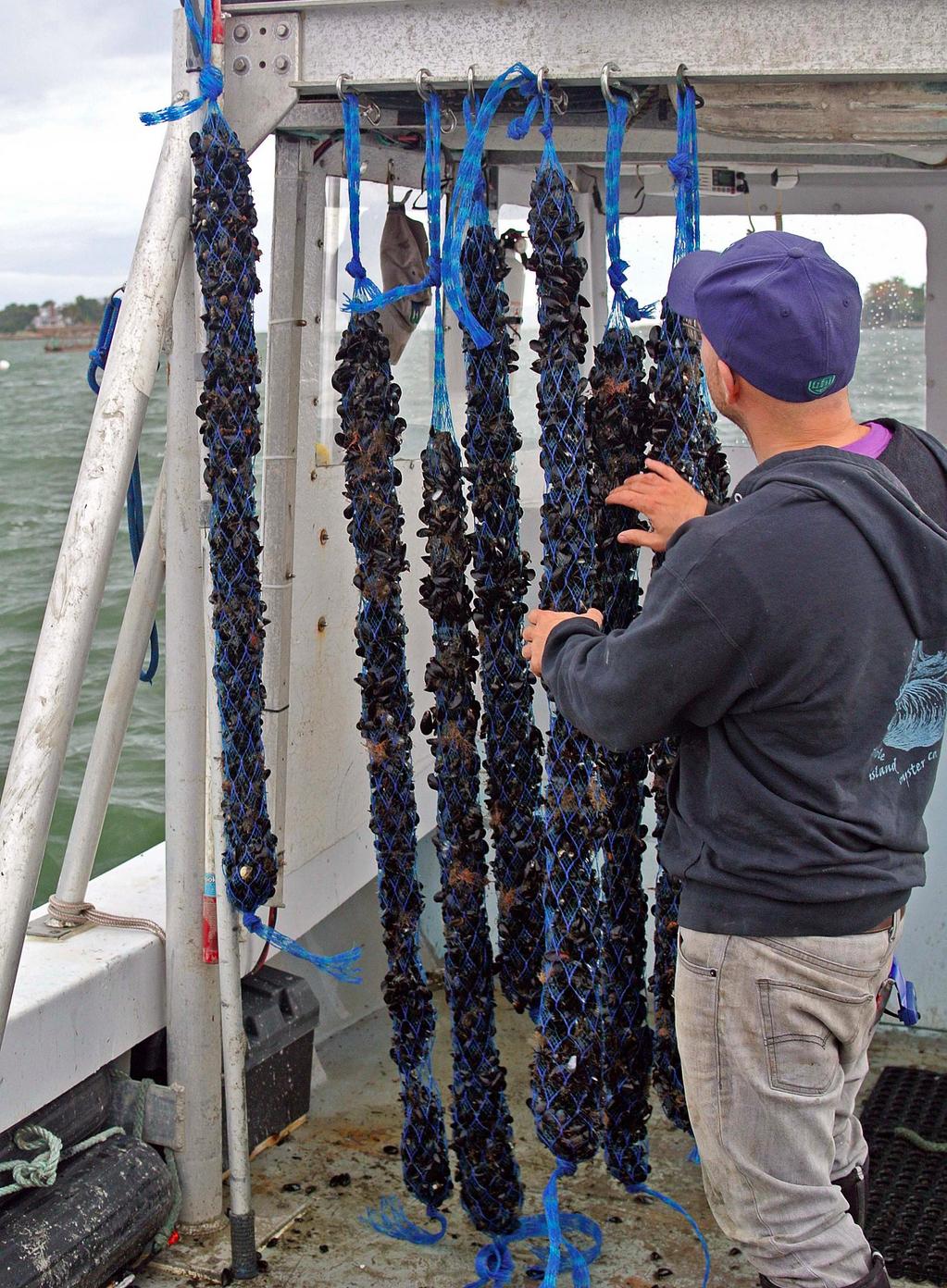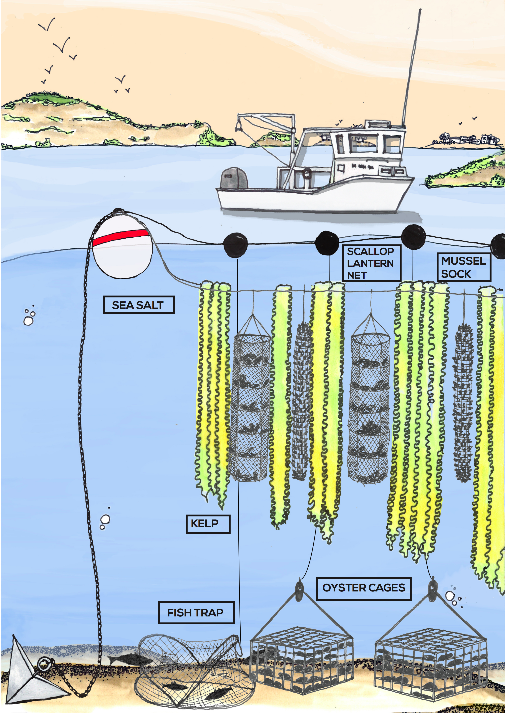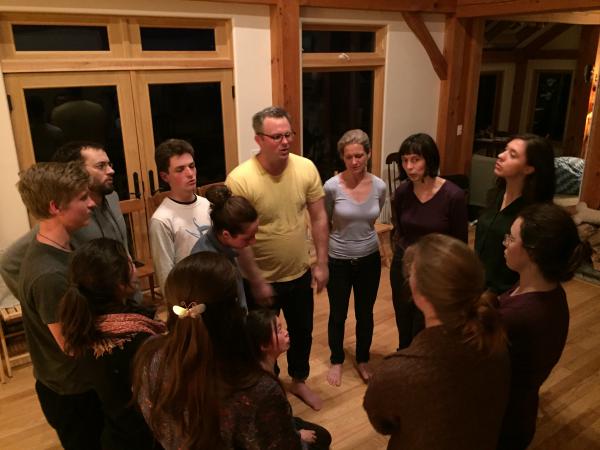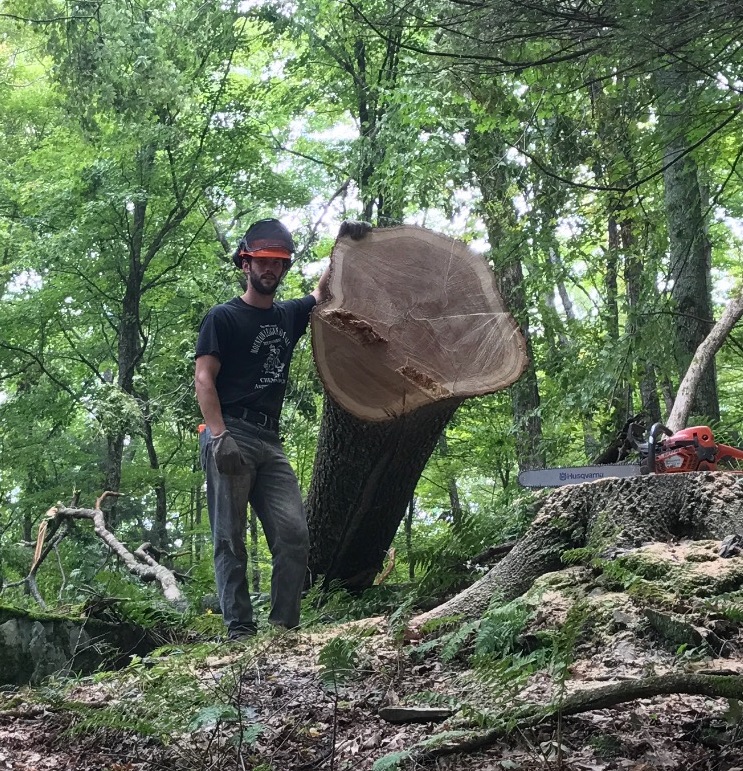Episode 155: Rising Seas And A Re-imagined Provincetown; Restorative Ocean Farming
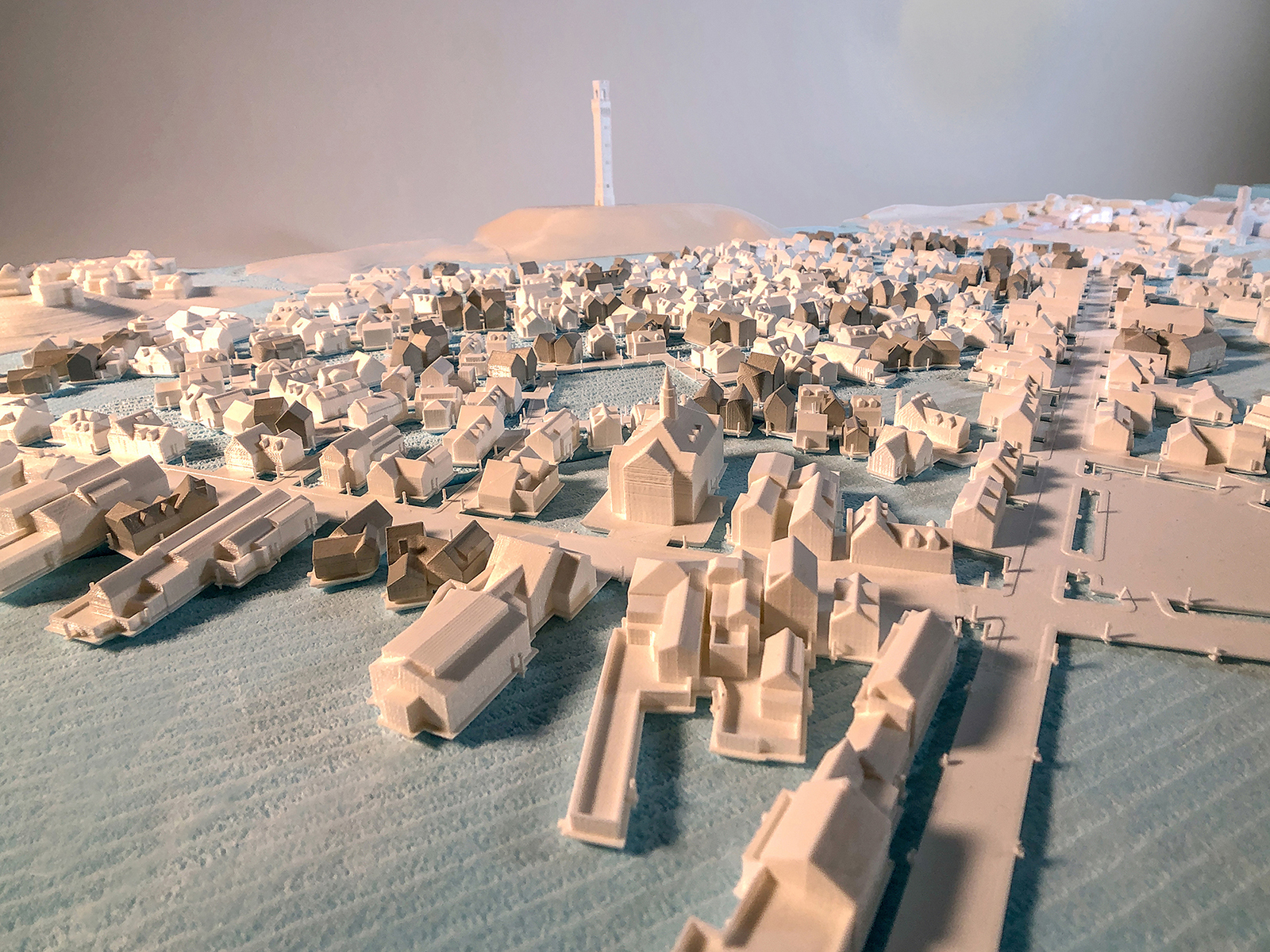
Architecture student Ben Hait’s designs for a future Provincetown, Massachusetts. Courtesy of Adam Sherman
This week on NEXT:
As sea levels rise, an architecture class imagines a new future for Provincetown, Massachusetts. We’ll also hear from a family that is taking the climate into account with each decision.
Plus, we’ll talk with a commercial fisherman turned restorative ocean farmer. And we’ll listen to a group that’s bringing new life to historic sea chanties.
Finally, the loggers of the northern forest who are working the old fashioned way.
It’s NEXT.
The Future of Provincetown, Massachusetts
Rising seas are a frightening reality for coastal communities, including many historic towns that have been built right to the water’s edge over the last few centuries. Provincetown, Massachusetts, at the tip of Cape Cod, is a perfect example of this kind of community. But what happens to the character of the place when sea level rise forces it to adapt?
Architecture students at Harvard University’s Graduate School of Design took this as a challenge in a course called: “The Future of Provincetown.” It’s led by Preston Scott Cohen, a professor of architecture at Harvard University’s graduate school of design. We had Scott join us in the studio, along with one of his students, Adam Sherman, who is also a Master of Architecture Candidate at Harvard University’s graduate school of design.
How One Family is Standing Up for the Climate
Climate change, for many, is a big, distant, looming threat, but not something to tackle or even think about every day. At least, that’s what Dr. Elizabeth Pinsky used to think. Then last October, Pinsky clicked open a UN report that describes a world wracked by drought, flooding and extreme heat by 2040. Pinsky, a pediatrician and child psychiatrist, gave herself some therapeutic advice: do something. Now every daily action and decision for Pinsky and her family includes this question: what will help protect the earth.
WBUR’s Martha Bebinger met Pinsky outside a T station one afternoon to see what life looks like with climate change front and center.
Why a Commercial Fisherman Turned to Ocean Farming
Bren Smith began his career as a commercial fisherman, but now is the owner of Thimble Island Oyster Farm, a 3D restorative ocean farm in Connecticut. He’s also the author of the new book, Eat Like a Fish: My Adventures as a Fisherman Turned Restorative Ocean Farmer. But what exactly is a “3D restorative ocean farm?” He says it might just be the future of working on the sea, and it’s a lot different than the life he used to live.
Historic Sea Chanties Brought Back to Life
We were struck by this line from Bren’s book: “There are no songs about hedge-fund managers or lawyers; there are hundreds about us.” Those songs come in many styles, including the sea chanty, once the soundtrack of the Golden Age of Sail. It’s gone the way of other traditional work songs — relegated to folk festivals, history museums, and a few tourist schooners.
But in Midcoast Maine, chanteys that have sat in the archives for nearly a hundred years are getting a new life, and being put back to work on Penobscot Bay.
From Maine Public Radio, Ari Snider has more.
Logging by Hand
One of the big changes in the culture and economy of the northern forest has been the transition from small-scale logging to mechanized logging, using big, heavy machinery.
Audio producer Erica Heilman went in search of the loggers who are still doing it the old-fashioned way, cutting down trees with chainsaws, attaching the logs to cable, and dragging them out, using what’s called a “skidder.” In her journey through the woods of northeastern Vermont and adjoining New Hampshire, Erica discovered what makes these loggers different — and learns about the intimate relationship between a forested region and the people who work there.
This podcast is part of The Resilient Forest series produced by Northern Woodlands and is supported by the Davis Conservation Foundation and the Larsen Fund. Most of the loggers you heard are part of the landscape of the vast working forest of Vermont’s Northeast Kingdom, the subject of a special report in the Summer 2019 issue of Northern Woodlands magazine. You can find that reporting — and more about the nonprofit here.
New England Music Featured on NEXT
About NEXT
NEXT is produced at Connecticut Public Radio
Host: John Dankosky
Producer: Lily Tyson
Digital Producer: Carlos Mejia
Senior Director: Catie Talarski
Contributors to this episode: Martha Bebinger, Ari Snider, Erica Heilman
Music: Todd Merrell, “New England” by Goodnight Blue Moon, “I’m Not Coming Home” by Wise Old Moon, “Dangerous Man” by Chris Ross and the North
New to NEXT? You can find every episode or one you missed within our archives.
We need your feedback! Send critiques, suggestions, questions, and ideas to next@ctpublic.org. Help us spread the word! If you like what you hear, rate and review us on iTunes.

